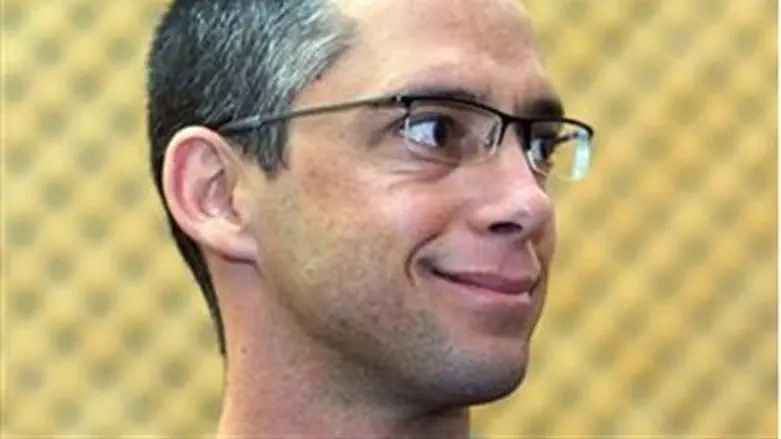
Gilad Sharon, younger son of the comatose former Prime Minister Ariel Sharon, became the third public figure to join the ranks of the Kadima Party in recent weeks.
Gilad, who was not heretofore involved in politics, is assumed to be seeking a spot on the party’s list of Knesset candidates. Kadima currently heads the Opposition, and as such its MKs are necessarily less active in Israel’s day-to-day affairs; this leads to a sense among supporters that a shake-up would be beneficial – thus encouraging aspiring MKs to join the party in the hope that they will be chosen in place of one the incumbents.
Several criminal suspicions were leveled in the past against the Sharon family – Ariel, older son and former MK Omri, and Gilad. The police recommended that the two sons be indicted on charges of arranging bribes; the recommendation was ultimately not accepted. Other bribery suspicions against Gilad – that he was paid millions of shekels for a job that entailed surfing the internet for a short period – were investigated by former Attorney General Menachem Mazuz, who closed the case.
Earlier this week, former GSS head Yaakov Perry announced that he was joining Kadima, just two weeks after former IDF Chief of Staff Dan Halutz made a similar announcement. Perry, who headed the Shabak from 1988 until 1994, was since then the CEO of Cellcom and currently heads Bank Mizrachi-Tefachot. MK Tzipi Livni, head of Kadima, said she welcomes Perry, calling him a “man rich in merits who contributed greatly to Israeli security and society.”
Halutz served with some distinction as Commander of the Israel Air Force, but left his next post – Chief of Staff of the IDF – in some ignominy, largely because of the army’s performance under his command in the Second Lebanon War.
The Kadima Party was founded by Ariel Sharon in late 2005, shortly before he went into a coma from which he has not awoken. He established the party when he left the Likud, where he was facing strong opposition for having planned and carried out the Disengagement – the expulsion of 9,000 Jews from Gush Katif in return for military quiet and international appreciation that never came.
Kadima did well in its first election, in 2006, garnering 29 seats; Ehud Olmert, who succeeded Sharon at the party helm, became the Prime Minister. In the next election, in February 2009, it remained the largest party, though it dropped to 28 seats. The Likud, which won 27 seats, formed the current government in its role as natural leader of the nationalist camp, which won more seats than the “peace” camp.
Polls today indicate that Kadima would retain its current strength if elections were held now.